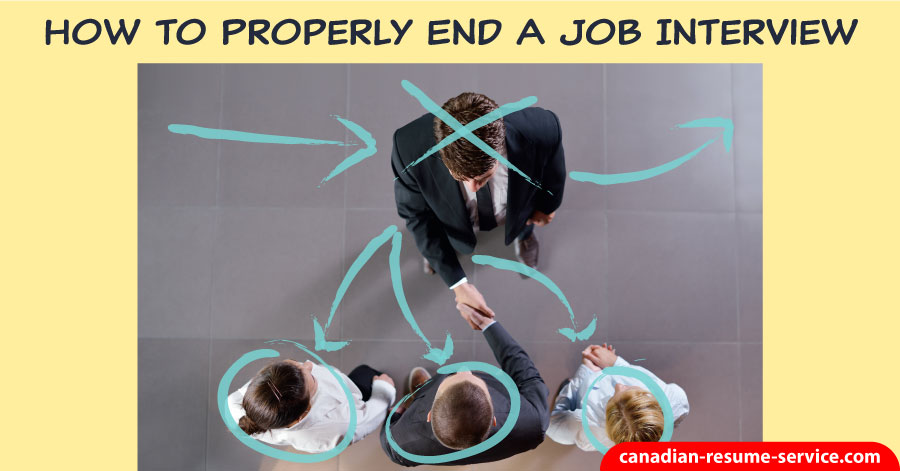There are several steps to achieving a new job: answering questions with confidence, accuracy, and passion, and of course ending the job interview successfully.
When you get chosen, this shows that an employer is interested in you and you have some quality or skill they need. They will then require you to come in person to clarify or buttress some critical points regarding your resume and the position.
When you reach the interviewing stage, you are close to securing the job; other people are shortlisted. So, it now boils down to proving you can offer more value than the other candidate—and you have to do this quickly.
Starting the interview positively is important, but closing it on an electrifying note is even more critical.
The following ten steps will show you how to properly end a job interview in a way that will help you land the position.
1. Emphasize the Reason Why You Are Applying
Make it clear why you are applying for the job and customize your responses to fit the company and its goals.
2. Make Relevant Claims
State how you can help the company fulfill its mission and vision with your ideas and how your agenda can fit theirs. Researching and studying the company’s mission statement, history, and policies is how to convince decision-makers that you can add value to the company.
3. Ask Insightful Questions
Be careful not to sound ill-informed or ask questions about items you could have readily gotten off their website or other sources. Ask questions that are relevant to the daily activities of the position. This will show your interest, your capabilities, and your motivation.
4. Ask if You Can Provide Anything or Answer Further Questions
Ensure they have exhausted all possible interview questions by asking if they have further questions or need you to provide anything else. Show you are prepared and confident by asking if they have any further questions. It will ensure you leave the interview with your interviewers with all the information they need to make an informed decision. If they don’t have a list of your references or transcripts, they may ask at the end of the interview.
5. Never Talk About Money or Remuneration
Don’t discuss wages and benefits at the interview; you can do that with a concrete job offer. For now, limit the discussion to how you can be of help.
6. Inquire About the Competition
There is no harm in finding out how many people you are competing with for the open position. They may provide details about the candidate and help you strategize better to land the job. Make sure not to sound as if they are a threat to you, though.
7. Ask What The Next Step in the Hiring Process
Be sure to determine the next step before leaving the interview room. Find out who should contact whom and when they will expect to have made a decision. Ask in a very courteous and positive manner. Inquire if you could contact the interviewer and if they prefer email or phone. Ensure you have the correct spelling and job titles of everyone on the interview panel.
8. Demonstrate Professionalism and Niceties
A firm handshake with all the panel members shows a lot of confidence. Look them in the eyes, smile, and offer a hand to all, one after the other, thanking them for meeting with you.
9. Don’t Leave the Interview in a Hurry
It would be best to prepare for a long conversation when accepting a job interview. Ensure you don’t rush to answer questions because you have other appointments. Leave the day free from any other commitments. The interviewer may ask you to meet key personnel within the company.
10. Pack Your Things With Ease
Don’t show any sign of nervousness. Take time and pack everything; do it carefully and organize. It commands some respect and shows your confidence and ease.
Need additional help? Reach out to Candace to learn more!

